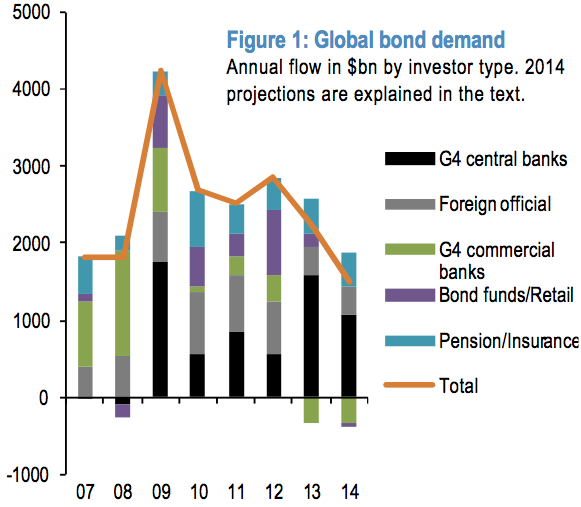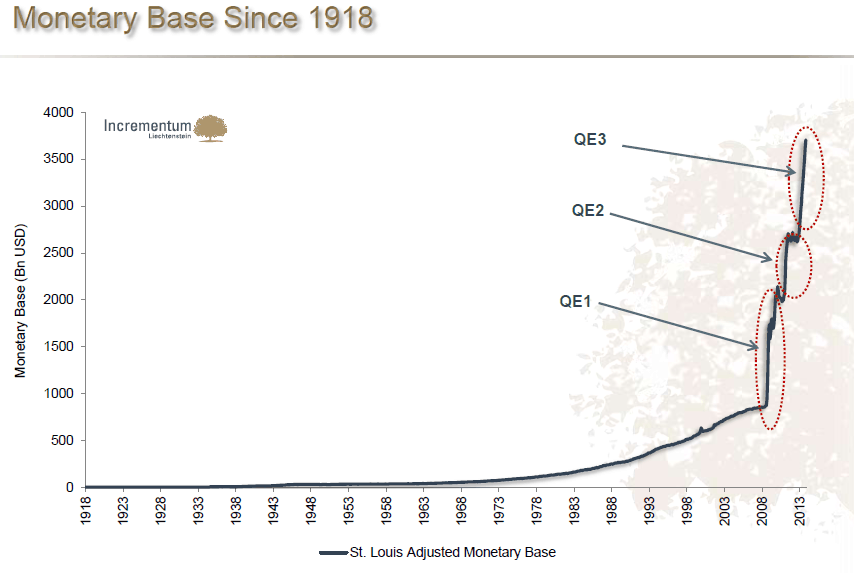Why Rating Is So Important to Stocks Bonds Economy
Post on: 17 Октябрь, 2015 No Comment

Loss of Confidence in U.S. Debt Would be Devastating
You can opt-out at any time.
Please refer to our privacy policy for contact information.
When investors judge the risk associated with an investment in stocks or bonds, they need a standard to measure the risk against.
For decades, that standard has been U.S. Treasury issued bonds, bills and notes. Those securities are considered the safest investment you can make because they are backed by the full faith and credit of the U.S. government.
This backing means the U.S. government is prepared to do whatever it takes to meet these obligations. Investors are lending money to the U.S. government when they buy U.S. Treasury issues and this backing assures investors will be paid.
In the simplest of examples, an investor knows she can make 3% (or whatever the current rate is) by buying a Treasury issue. Any other investment must earn more than 3% to compensate her for investing in a security (bond or stock) that is not backed by the full faith and credit of the U.S. government.
The premium over the Treasury issue is called the risk premium. There may be other factors that go into calculating the risk premium, but it begins with U.S. Treasury issues as the base.
What would happen if Treasury issues lost their status as the safest investments possible? The short answer is no one knows for sure. If the U.S. defaulted (failed to pay investors when Treasury issues matured), confidence in all investments would be called into question.
Here are some of the possibilities of the consequences of a default and/or a reduction in the rating of U.S. Treasury debt:
Bonds — Interest rates for all debt would rise and perhaps dramatically. A default would call into question the safety of all investments (if U.S. Treasuries are now risky, how much more risky are other investments).
Without its top rating as the most secure investment, U.S Treasury issues would have to pay higher interest rates to attract investors. Previously issued Treasury securities would fall in value since newer issues would pay higher rates.
Most previously issued debt securities (corporate and municipal bonds, for example) would be devalued because investors could get higher returns from new Treasury issues. New issues would have to pay higher rates to compete.
In general, a down grade in the rating of U.S. debt would shake the confidence in the investment community, which would drive interest rates up and bond prices down.
Stocks — If U.S. debt loses its status as the safest investment, many investors would question the safety of investing money in U.S. companies and demand much higher returns to offset the higher perceived risk. A reduction in the debt rating or a default would create an air of uncertainty that would almost assuredly send stocks lower as investors bailed out of the market.

Interest rates across the board would rise dramatically, which would cause the price of most goods and services to rise. Inflation would begin spiraling up.
How quickly stocks rebound after a default would depend in part on what the U.S. government does to correct the problem and how quickly the fix could be implemented.
Economy — The U.S. economy would suffer a devastating blow should it default on its debt. Investments would flee the country or seek safety in real assets such as gold.
The U.S. government and the programs it funds at a state and local level is the largest economic engine in the country. If it defaults of payments or can’t borrow additional money to pay its debt and other ongoing obligations, benefits, programs and other actions that put money into the economy would stop or be reduced.
The result would be significantly higher unemployment, which would reduce consumer spending and severely damage the economy. Businesses would fail or cut back operations if fewer consumers had money to spend.
Other businesses that rely on doing business directly with the federal, state and local governments would fail or reduce operations. Higher interest rates would make it difficult for businesses to fund daily and long-term needs.
A default or rating reduction would likely precipitate a major recession or even a depression.
Summary — A default or reduction in the debt rating would have devastating consequences for investors and the economy. If the U.S. economy slips into recession or worse, it would likely take most of the global economy with it.














